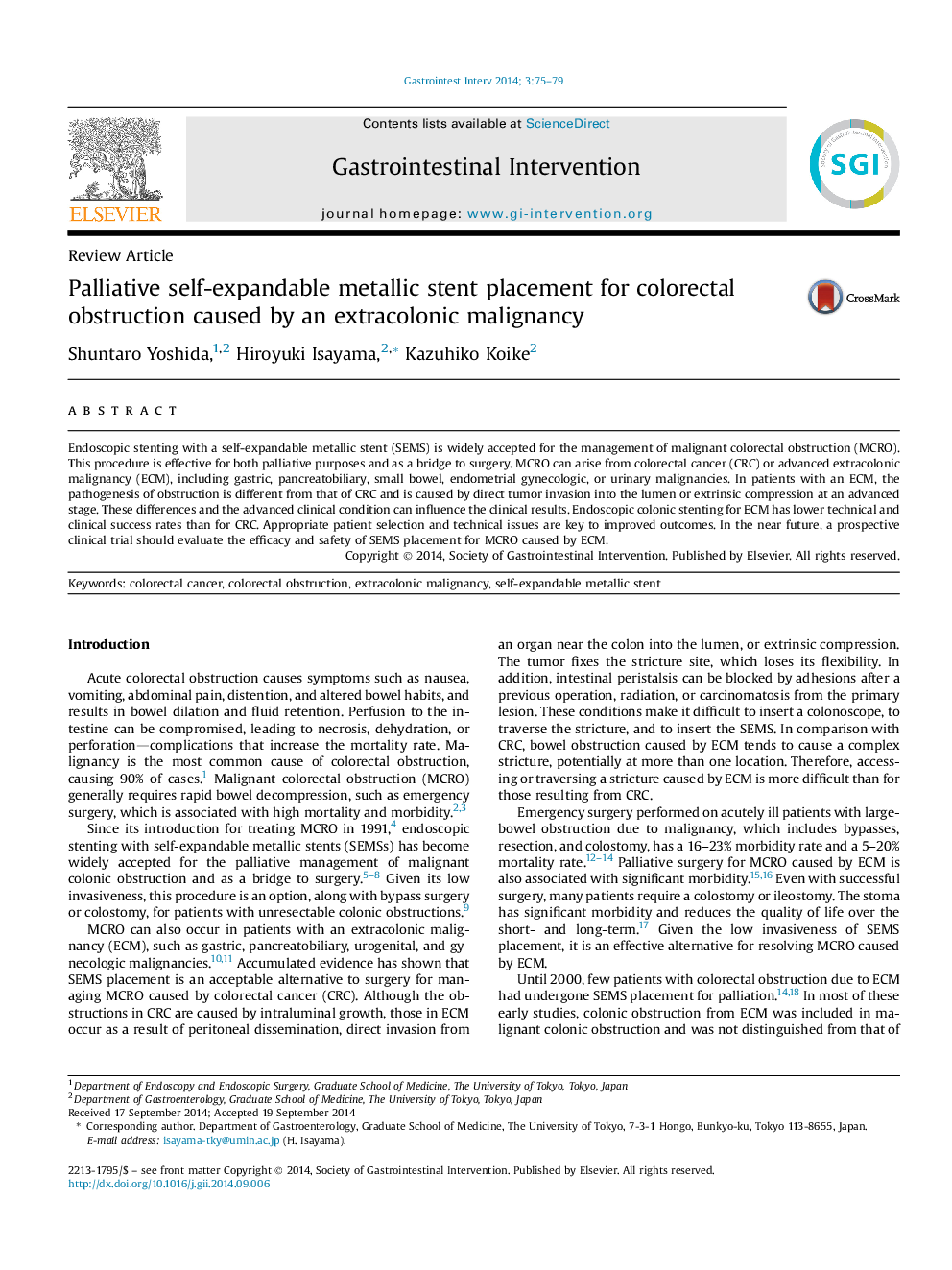| Article ID | Journal | Published Year | Pages | File Type |
|---|---|---|---|---|
| 3310949 | Gastrointestinal Intervention | 2014 | 5 Pages |
Endoscopic stenting with a self-expandable metallic stent (SEMS) is widely accepted for the management of malignant colorectal obstruction (MCRO). This procedure is effective for both palliative purposes and as a bridge to surgery. MCRO can arise from colorectal cancer (CRC) or advanced extracolonic malignancy (ECM), including gastric, pancreatobiliary, small bowel, endometrial gynecologic, or urinary malignancies. In patients with an ECM, the pathogenesis of obstruction is different from that of CRC and is caused by direct tumor invasion into the lumen or extrinsic compression at an advanced stage. These differences and the advanced clinical condition can influence the clinical results. Endoscopic colonic stenting for ECM has lower technical and clinical success rates than for CRC. Appropriate patient selection and technical issues are key to improved outcomes. In the near future, a prospective clinical trial should evaluate the efficacy and safety of SEMS placement for MCRO caused by ECM.
